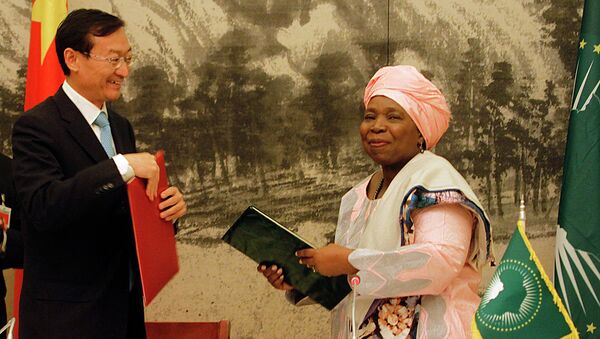"In the past, Chinese interest in Africa was strongly ideological, part of the competition with the USSR for world-wide influence. It also tended to support 'freedom fighters' against Western imperialism. Those days have long gone and China's main interest in the region now is resources and access to them. Cultivating African leaders and building up the transport infrastructure is a good way of guaranteeing access to resources," Mr. Hoare explains.
The policy expert notes that naturally, "this means competing with other countries that also want resources." Hoare notes that the advantage of the Chinese investment approach tends to be that "the Chinese tend to take a long-tern view" of things. He believes that Chinese projects to invest in railway infrastructure are particularly beneficial, noting that "investing in a project like a railway makes sense. Railway building is labor intensive and the Chinese have plenty of labor and in recent years much experience in constructing modern railway systems."
Xinhua quoted Ms. Zuma as saying that "China will be a key partner in our noble quest for transformation through industrialization and development of modern infrastructure like high speed trains, superhighways, ports and ICT infrastructure." The Chairwoman added that the China-Africa "relationship…the cooperation, is taking a different height, a different level, and a different dimension."
African and Chinese officials and commentators have challenged Western analysts' accusations that the new projects are a form of neocolonialism. AU Commissioner for Infrastructure and Energy Elham Ibrahim told Xinhua that "for colonialism, I think one is benefiting and the other is losing, but China-Africa cooperation can benefit both."
Over the past decade-and-a-half, China has completed 1,046 projects in Africa, including over 2,200 km of railways and over 3,500 km of highways.





